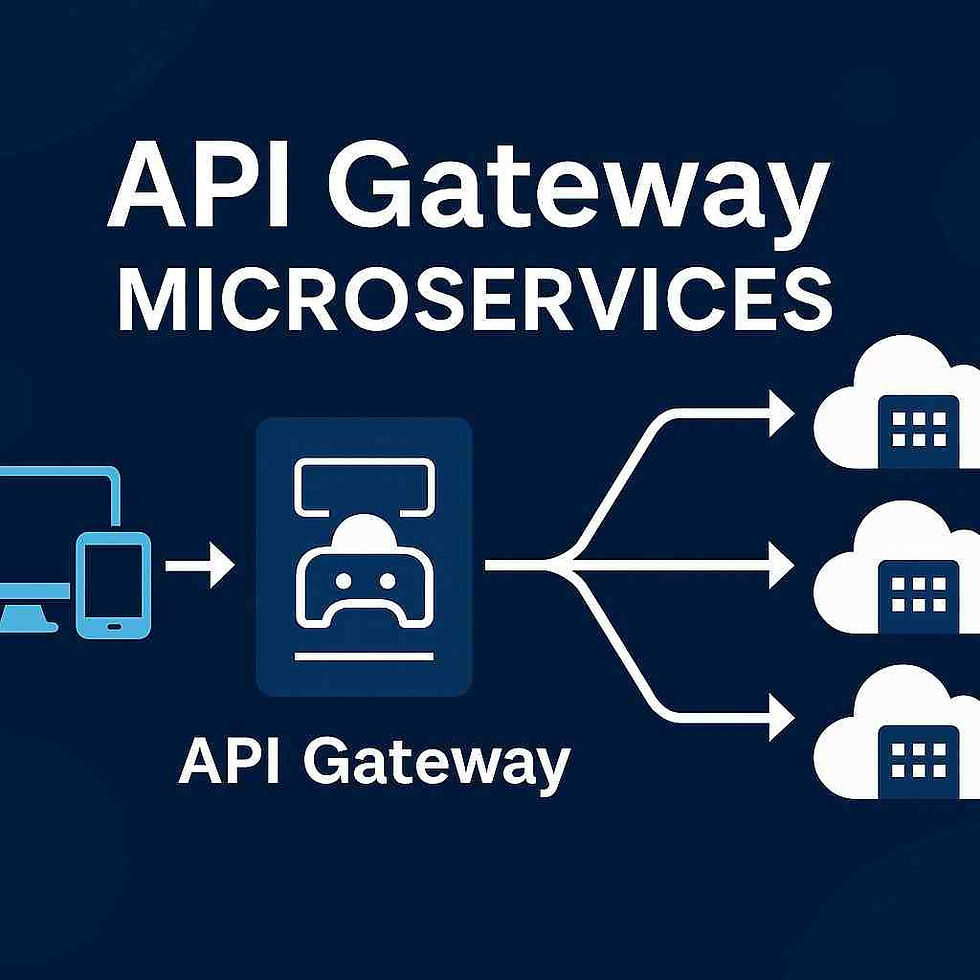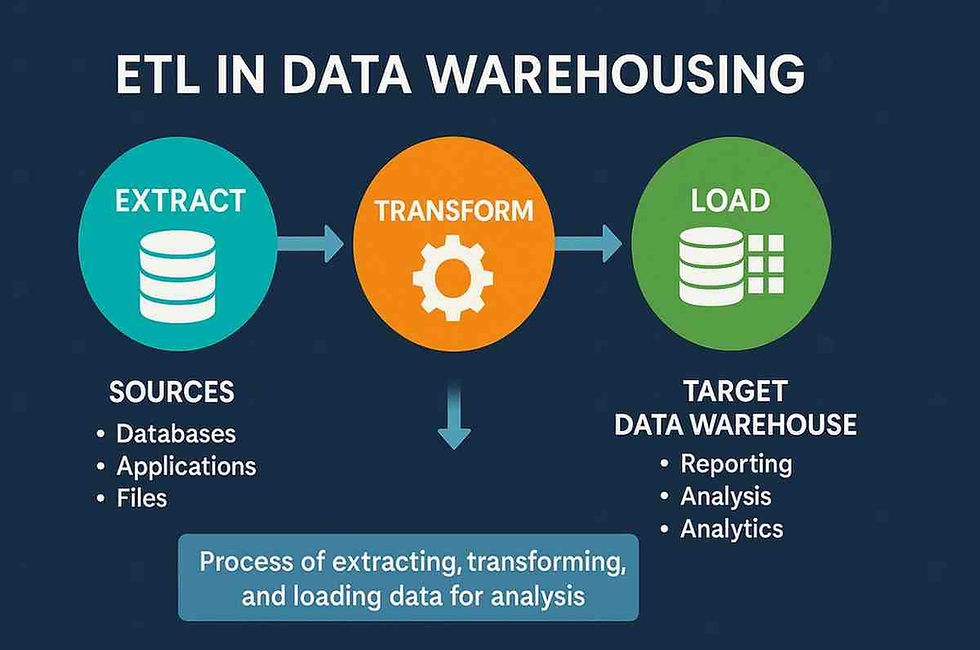Your Guide to Mastering CD and CI Tools for DevOps Projects
- Gunashree RS
- Aug 5, 2024
- 6 min read
Updated: Sep 18, 2024
Introduction
In the dynamic world of software development, ensuring that your code is integrated seamlessly and delivered efficiently is crucial. This is where Continuous Integration (CI) and Continuous Delivery (CD) come into play. CI/CD tools automate the process of merging code changes, running tests, and deploying applications, making the development process faster and more reliable. This comprehensive guide will explore the best CD and CI tools, their benefits, and how to choose the right tool for your DevOps project.
What are CD and CI Tools?
Continuous Integration (CI) is a practice where developers frequently integrate their code changes into a shared repository, followed by automated builds and tests. Continuous Delivery (CD) extends CI by automating the release process, allowing code changes to be deployed to production with minimal manual intervention.

Benefits of Using CD and CI Tools
Smaller Code Modifications: Frequent integrations lead to smaller, more manageable changes.
Isolation of Faults: Easier to identify and fix bugs.
Shorter Time to Resolution: Faster debugging and issue resolution.
Increased Test Reliability: Automated tests ensure consistent quality.
Increased Release Rate: Speeds up the deployment process.
Reduced Backlog: Streamlines the workflow, reducing bottlenecks.
Customer Contentment: Ensures frequent and reliable updates.
Improved Team Accountability and Transparency: Clearer visibility into development processes.
Reduced Expenses: Automation reduces manual labor and associated costs.
Ease of Updates and Maintenance: Simplifies the process of updating and maintaining software.
How to Choose the Right CD and CI Tool?
Choosing the right CD and CI tool depends on several factors:
Functionality: Ensure the tool supports your required features.
Extensibility: The ability to extend and customize the tool.
Supported Languages and Platforms: Compatibility with your tech stack.
Budget: Consider the cost and available budget.
Ease of Use: User-friendly interfaces and documentation.
Best CD and CI Tools
Here’s a list of top CD and CI tools that one must consider for their DevOps projects:
1. Buddy
Buddy is a user-friendly CI/CD tool designed for web developers. It automates the build, test, and deployment process using delivery pipelines and supports a wide range of languages and frameworks.
Benefits:
Quick setup with a user-friendly interface.
Fast deployments based on changesets.
Supports Docker/Kubernetes actions and YAML configuration.
Provides isolated containers with cached dependencies.
2. Jenkins
Jenkins is an open-source CI/CD tool widely used for automating various parts of the software development lifecycle. It supports real-time testing and reporting and can be extended via numerous plugins.
Benefits:
Strong community support and extensive documentation.
Easy setup and free to use.
Platform-independent as it's built with Java.
3. Buildbot
Buildbot is an open-source framework for automating the build, test, and release processes. It supports parallel and distributed builds across multiple platforms.
Benefits:
Supports multiple programming languages.
Parallel execution of builds.
Detailed build and test reporting.
4. Devzery
Devzery is an AI-powered CI/CD tool that enhances the software development lifecycle with its robust API testing capabilities. It integrates seamlessly into various development workflows and supports automated testing and deployment processes.
Benefits:
AI-powered API testing for robust quality assurance.
Integrates with a wide range of development environments.
Provides codeless automation and comprehensive QA services.
5. IBM UrbanCode
IBM UrbanCode provides continuous delivery and deployment automation. It supports complex deployments to various environments, including clouds and data centers.
Benefits:
Continuous delivery and self-service.
Supports rolling back deployments.
Manages thousands of endpoints efficiently.
6. Perforce Helix
Perforce Helix is a scalable and flexible CI platform that supports a wide range of APIs. It offers features for version control, application management, and agile planning.
Benefits:
Manages large codebases and binary files.
High-performance replication for global teams.
Customizable for specific team workflows.
7. Bitbucket Pipelines
Bitbucket Pipelines is an integrated CI/CD service built into Bitbucket. It automates the build, test, and deployment process based on configuration files in the repository.
Benefits:
Seamless integration with Jira and Trello.
Provides cloud containers for isolated builds.
Supports parallel execution and caching.
8. TeamCity
TeamCity is a CI/CD tool with extensive capabilities, including code coverage, analysis, and duplication detection. It archives all builds and errors for future reference.
Benefits:
Reuses project settings across multiple builds.
Supports version control systems.
Identifies unresponsive builds.
9. CircleCI
CircleCI is a flexible CI/CD tool that supports various development environments, including Docker and mobile apps. It optimizes builds with parallelism and caching.
Benefits:
SSH into builds for troubleshooting.
Configurable caching for faster builds.
Supports self-hosted runners.
10. Codeship
Codeship is a CI/CD tool designed for cloud environments. It offers seamless integration with various services and tools, delivering fast builds and deployments.
Benefits:
Quick and automated software releases.
Customizable for different workflows.
Frequent deployment notifications.
11. AWS CodePipeline
AWS CodePipeline automates the build, test, and deploy phases of the release process. It integrates with various AWS services and third-party tools.
Benefits:
Continuous integration and delivery.
Supports container-based deployments.
Enhances developer productivity.
12. GoCD
GoCD is an open-source tool for continuous delivery. It offers flexible deployment pipelines and supports complex CD scenarios.
Benefits:
Easy pipeline configuration.
Supports both Windows and Linux.
Built-in support for common CD use cases.
13. Travis CI
Travis CI is an open-source CI service that integrates with GitHub. It supports multiple programming languages and platforms, including Linux and macOS.
Benefits:
Automates build and test processes.
Supports parallel test runs.
Easy deployment to cloud services.
14. Azure Pipelines
Azure Pipelines combines CI and CD to automate the build, test, and deploy processes. It supports multiple languages and integrates with Azure Repos.
Benefits:
Supports various programming languages.
Integrates with any Git repository.
Free for public projects.
15. GitLab CI/CD
GitLab CI/CD is part of the GitLab platform, providing tools for managing the entire software development lifecycle. It automates builds, tests, and deployments with every commit or push.
Benefits:
Simple configuration.
Secure source code management.
Comprehensive pipeline automation.
Which CD and CI Tools Should You Choose?
Choosing the right CI/CD tool depends on your specific needs. Here are some considerations for popular tools:
Buddy: Ideal for web developers needing quick setups and integration with various services.
Jenkins: Suitable for teams needing extensive plugin support and a strong community.
Buildbot: Best for projects requiring parallel and distributed builds.
UrbanCode: Great for enterprises needing complex deployment automation.
Devzery: Perfect for teams needing AI-powered API regression testing, codeless automation, and seamless CI/CD integration across various languages and frameworks.
Perforce Helix: Suitable for large codebases and teams needing high-performance version control.
Bitbucket Pipelines: Best for teams already using Bitbucket with seamless Jira integration.
TeamCity: Ideal for projects needing detailed code analysis and version control support.
CircleCI: Suitable for teams needing flexible build environments and parallel execution.
Codeship: Best for teams looking for cloud-based CI/CD with quick deployments.
AWS CodePipeline: Suitable for projects heavily utilizing AWS services.
GoCD: Best for teams needing flexible and easy-to-configure deployment pipelines.
Travis CI: Suitable for projects hosted on GitHub with a need for cross-platform support.
Azure Pipelines: Ideal for projects using Azure services and needing broad language support.
GitLab CI/CD: Best for teams using GitLab with a need for comprehensive pipeline control.
Conclusion
Implementing CI/CD practices is essential for modern software development, ensuring fast, reliable, and efficient delivery of applications. By choosing the right CI/CD tool, development teams can automate their workflows, reduce errors, and focus on delivering value to their users. Each tool has its unique strengths, so consider your project requirements, team size, and existing infrastructure when making your choice.
Key Takeaways
CI/CD Tools: Essential for automating integration and delivery processes.
Benefits: Improve code quality, speed up deployments, and enhance team collaboration.
Choosing Tools: Consider functionality, extensibility, supported languages, and budget.
Popular Tools: Jenkins, Buddy, CircleCI, Devzery, TeamCity, GitLab CI/CD, and more.
Integration: Many tools integrate seamlessly with other services like AWS, GitHub, and Docker.
Project Suitability: Suitable for projects of all sizes, from small startups to large enterprises.
FAQs
What are CI and CD tools?
CI/CD tools automate the process of integrating code changes, running tests, and deploying applications, ensuring seamless and efficient software development.
Why are CI/CD tools important?
CI/CD tools are essential for maintaining code quality, speeding up the deployment process, and ensuring reliable and consistent software releases.
How do I choose the right CI/CD tool?
Consider factors like functionality, extensibility, supported languages, budget, and ease of use when choosing a CI/CD tool.
What are some popular CI/CD tools?
Popular CI/CD tools include Jenkins, Buddy, CircleCI, TeamCity, and GitLab CI/CD.
Can CI/CD tools integrate with other services?
Yes, many CI/CD tools offer integrations with various services like AWS, GitHub, Jira, and Docker.
Are CI/CD tools suitable for all project sizes?
Yes, CI/CD tools can be used for projects of all sizes, from small startups to large enterprises.
What benefits do CI/CD tools offer?
Benefits include smaller code modifications, faster issue resolution, increased test reliability, improved release rates, and better team accountability.
Is there a cost associated with CI/CD tools?
Some CI/CD tools are open-source and free, while others may require a subscription or licensing fee.




Comments